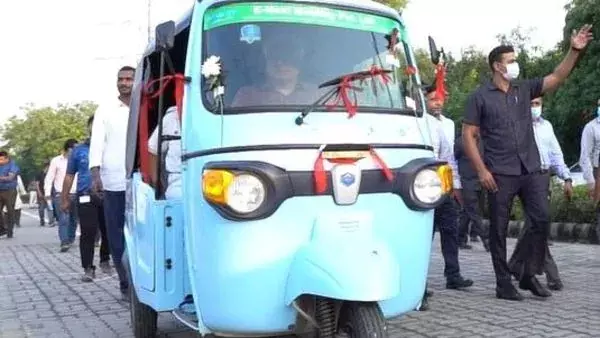Delhi Govt Policy To Issue Permits Solely To E-Auto Rickshaws Not Arbitrary : Supreme Court Rejects Bajaj's Plea
Sohini Chowdhury
15 Dec 2021 5:48 PM IST

Next Story
15 Dec 2021 5:48 PM IST
On Wednesday, the Supreme Court dismissed the application filed by Bajaj Auto Limited seeking declaration that the advertisement of the Govt. of NCT of Delhi dated 18.10.2021, calling for application for new TSR permits exclusively for e-autos is ultra vires Articles 14 and 19(1)(g) of the Constitution of India. On hearing the parties and perusing their affidavits, a bench...
